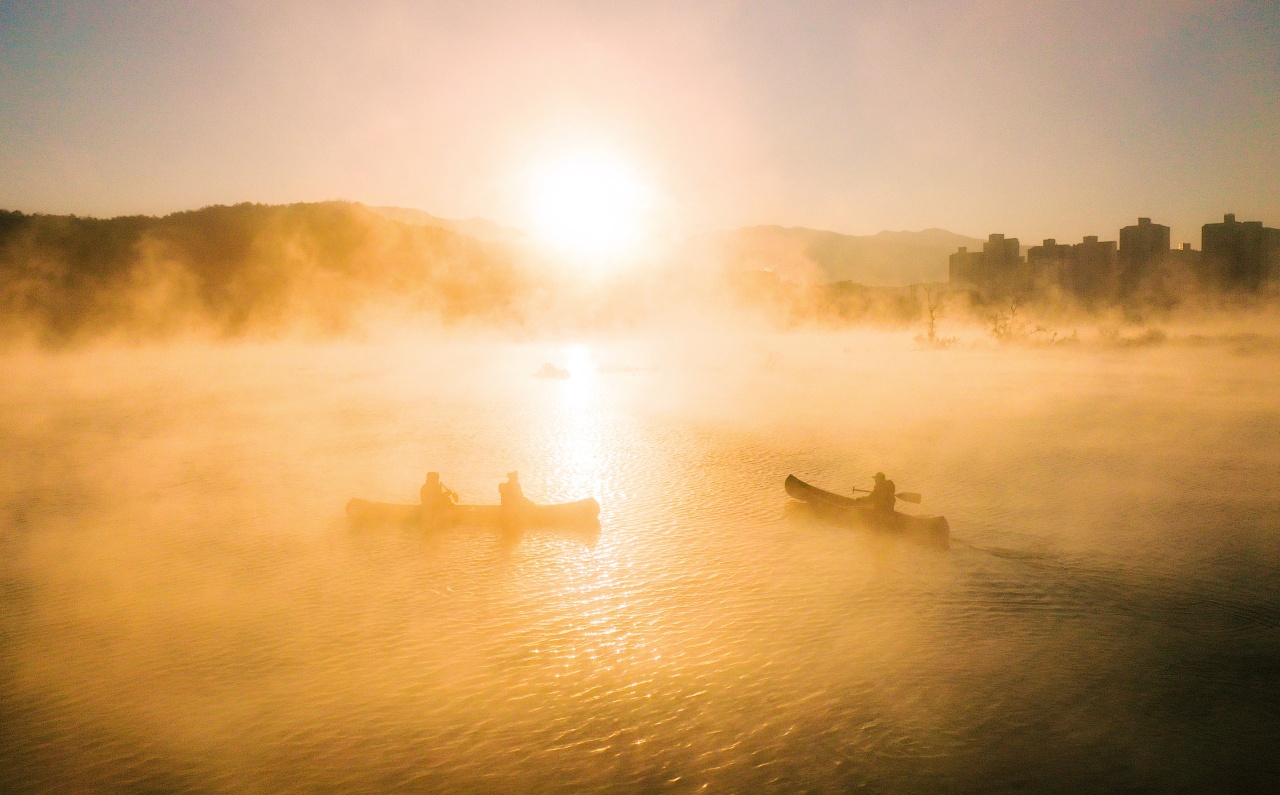Uncontrolled carbon emissions could warm Korea by 7 degrees in 60 years, weather agency warns
Failure to cap pollution could destroy ozone layer, pose serious crisis for humankind: report
By Kan Hyeong-wooPublished : Jan. 18, 2021 - 17:01

If carbon emissions are kept at the current level, the temperature on the Korean Peninsula could rise by 7 degrees Celsius within the next 60 years, the Korea Meteorological Agency said Monday.
Based on a recent report from the Intergovernmental Panel on Climate Change, the state-run weather agency released its Korean Peninsula Climate Change Forecast Report 2020.
The KMA’s report divided the climate change outlook into two scenarios -- “high-carbon” and “low-carbon.”
In the high-carbon scenario, under which carbon emissions remain at the current level, the temperature on the Korean Peninsula could rise by 3.3 degrees Celsius within the next 40 years, accelerating climate change after the mid-21st century.
If the temperature increases by 7 degrees Celsius, the report said, it could destroy the ozone layer and cause a serious crisis for humankind.
According to the report, the high-carbon scenario would most likely bring more extreme weather in the distant future.
The number of dangerously hot days, when the maximum temperature exceeds 30 degrees Celsius, could shoot up to 93.4, quadruple what it is now. Extreme precipitation days, bringing torrential rain, are forecast to increase by 30 percent in the distant future.
In the low-carbon scenario, on the other hand, the report said cutting down carbon emissions would minimize the temperature increase, keeping it to 2.6 degrees Celsius within the next 80 years, and slow down climate change. This would result in no significant changes in the number of warm days or heavy rain days.
The KMA said the report shows that active efforts to achieve zero greenhouse gas emissions are needed more than anything to overcome Korea’s climate crisis and ensure its survival.
“In this era of global climate crisis, we expect the climate change scenario by the Korea Meteorological Administration to be a useful scientific basis for embracing the government’s 2050 carbon neutral plan and establishing climate change policies,” said Park Kwang-suk, chief of the KMA.
By Kan Hyeong-woo (hwkan@heraldcorp.com)
Based on a recent report from the Intergovernmental Panel on Climate Change, the state-run weather agency released its Korean Peninsula Climate Change Forecast Report 2020.
The KMA’s report divided the climate change outlook into two scenarios -- “high-carbon” and “low-carbon.”
In the high-carbon scenario, under which carbon emissions remain at the current level, the temperature on the Korean Peninsula could rise by 3.3 degrees Celsius within the next 40 years, accelerating climate change after the mid-21st century.
If the temperature increases by 7 degrees Celsius, the report said, it could destroy the ozone layer and cause a serious crisis for humankind.
According to the report, the high-carbon scenario would most likely bring more extreme weather in the distant future.
The number of dangerously hot days, when the maximum temperature exceeds 30 degrees Celsius, could shoot up to 93.4, quadruple what it is now. Extreme precipitation days, bringing torrential rain, are forecast to increase by 30 percent in the distant future.
In the low-carbon scenario, on the other hand, the report said cutting down carbon emissions would minimize the temperature increase, keeping it to 2.6 degrees Celsius within the next 80 years, and slow down climate change. This would result in no significant changes in the number of warm days or heavy rain days.
The KMA said the report shows that active efforts to achieve zero greenhouse gas emissions are needed more than anything to overcome Korea’s climate crisis and ensure its survival.
“In this era of global climate crisis, we expect the climate change scenario by the Korea Meteorological Administration to be a useful scientific basis for embracing the government’s 2050 carbon neutral plan and establishing climate change policies,” said Park Kwang-suk, chief of the KMA.
By Kan Hyeong-woo (hwkan@heraldcorp.com)








![[Kim Seong-kon] Democracy and the future of South Korea](http://res.heraldm.com/phpwas/restmb_idxmake.php?idx=644&simg=/content/image/2024/04/16/20240416050802_0.jpg&u=)








![[KH Explains] Hyundai's full hybrid edge to pay off amid slow transition to pure EVs](http://res.heraldm.com/phpwas/restmb_idxmake.php?idx=652&simg=/content/image/2024/04/18/20240418050645_0.jpg&u=20240418181020)

![[Today’s K-pop] Zico drops snippet of collaboration with Jennie](http://res.heraldm.com/phpwas/restmb_idxmake.php?idx=642&simg=/content/image/2024/04/18/20240418050702_0.jpg&u=)